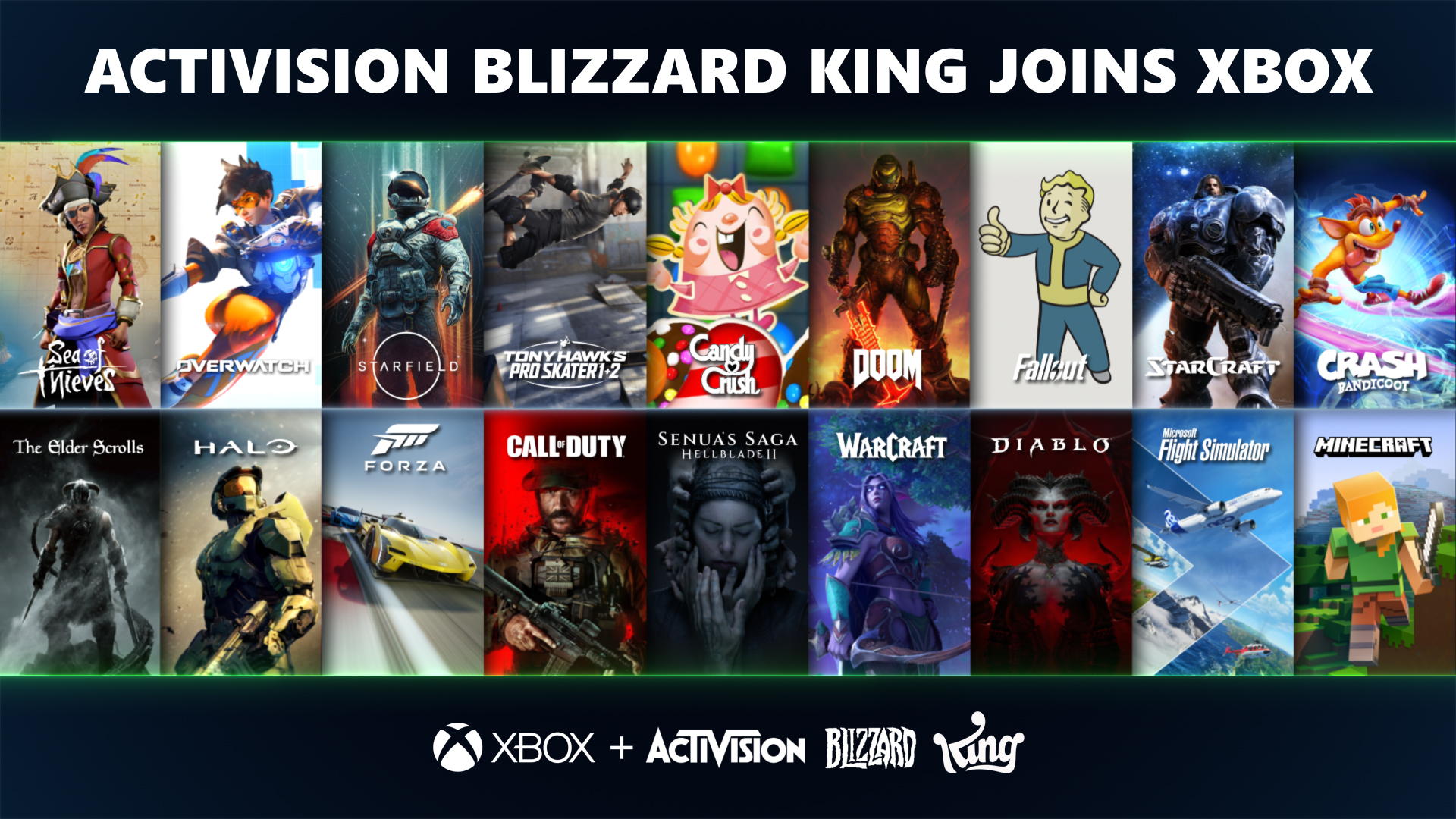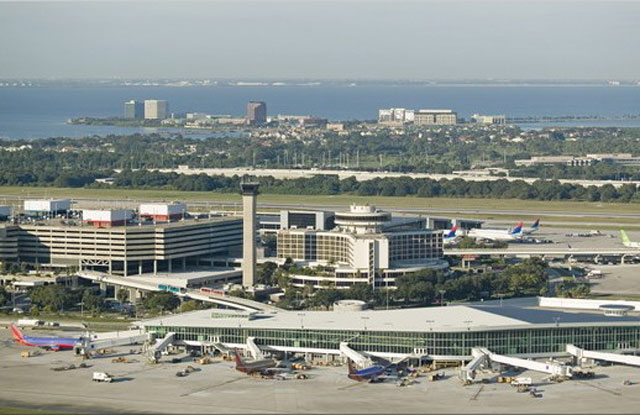Activision Blizzard Acquisition: FTC's Appeal Against Court Ruling

Table of Contents
The FTC's Initial Lawsuit and the Court Ruling
The FTC initially filed a lawsuit to block the Activision Blizzard acquisition, arguing it would harm competition in the video game market, particularly concerning the immensely popular Call of Duty franchise. The commission expressed concerns that Microsoft, already a major player with Xbox, acquiring Activision Blizzard—the creator of Call of Duty, World of Warcraft, Candy Crush, and many other titles—would create an unfair competitive advantage. Their arguments centered on the potential for Microsoft to make Call of Duty exclusive to Xbox, harming PlayStation and other competitors. This would limit consumer choice and potentially lead to higher prices or reduced quality across the industry.
The FTC presented evidence suggesting the acquisition could stifle innovation and competition, ultimately harming consumers. However, the judge presiding over the case dismissed the FTC’s arguments, ruling that the commission failed to convincingly demonstrate that the acquisition would likely lead to substantial lessening of competition. The judge's decision allowed the Microsoft-Activision Blizzard merger to proceed.
- FTC's concerns about Microsoft's market dominance: The FTC argued that the combined market power of Microsoft and Activision Blizzard would create a near-monopoly.
- Arguments concerning the exclusivity of key franchises like Call of Duty: A central concern was the potential for Microsoft to leverage Call of Duty's popularity to gain an unfair advantage over competitors.
- Judge's ruling against the FTC's request for an injunction: The court’s decision effectively cleared the path for the acquisition to finalize.
The FTC's Appeal and Key Arguments
Undeterred by the initial setback, the FTC decided to appeal the court's decision. The appeal focuses on alleged errors in the lower court's interpretation of antitrust law and presents new evidence to support its claims. The FTC argues that the judge misconstrued the evidence regarding the potential for anti-competitive behavior by Microsoft post-acquisition. They are likely to emphasize the importance of preserving competition in the dynamic gaming market and preventing the creation of monopolies that could stifle innovation and harm consumers.
The FTC’s appeal strategy may involve presenting new economic models, expert testimony, and potentially highlighting internal Microsoft documents to strengthen its case. The appeal process will likely involve a rigorous examination of legal precedents related to mergers and acquisitions in the technology sector.
- Grounds for appeal: The FTC’s appeal centers on claims of legal misinterpretations and procedural errors by the lower court.
- New evidence presented in the appeal: The FTC is expected to provide additional data and analysis to support their claims of anti-competitive behavior.
- Potential legal precedents used by the FTC: The FTC will likely reference past antitrust cases involving tech mergers to bolster its argument.
Potential Outcomes and Implications for the Gaming Industry
The appeal's outcome holds significant consequences. If the appellate court affirms the lower court's ruling, the Activision Blizzard acquisition will be finalized, potentially shaping the future of the gaming industry under Microsoft's control. Conversely, a reversal would block the acquisition, forcing Microsoft to reconsider its strategy and potentially triggering further legal battles.
Regardless of the outcome, this case will have lasting implications. The decision will influence future mergers and acquisitions within the technology sector, setting precedents for antitrust enforcement. The availability and pricing of games, particularly Call of Duty, will be directly impacted by the acquisition’s outcome. It will also set a precedent for how regulatory bodies approach the increasing consolidation of power in the tech industry.
- Impact on Microsoft's market share and power: The acquisition will significantly increase Microsoft's market share, impacting its dominance in the gaming sector.
- Effects on future mergers and acquisitions in the tech industry: The outcome will set a precedent for future regulatory scrutiny of large tech mergers.
- The role of regulatory bodies in controlling tech monopolies: The case highlights the challenges regulatory bodies face in balancing innovation with the prevention of monopolies.
The Future of Call of Duty and other Activision Blizzard Titles
The fate of Call of Duty and other Activision Blizzard franchises hinges heavily on the outcome of the appeal. If the acquisition is approved, the future of Call of Duty's platform exclusivity remains uncertain. Microsoft has made public statements about its intentions to keep the franchise available on multiple platforms, but these assurances might not be enough to fully alleviate the FTC's concerns. The potential for increased pricing or altered content due to exclusivity remains a concern for many gamers.
The ongoing legal battle significantly impacts the entire gaming community, affecting not just the availability of key titles but also the competitive landscape in the industry.
- Scenarios for Call of Duty's future platform exclusivity: Call of Duty could remain multi-platform, become Xbox exclusive, or see some form of timed exclusivity.
- Impact on player access and pricing: The acquisition's outcome directly affects player access to games and the potential for price increases.
- Long-term effects on competition within the gaming market: The merger’s success or failure will have long-term effects on competition and innovation in the gaming industry.
Conclusion
The FTC's appeal against the court's decision on the Microsoft-Activision Blizzard acquisition is a critical case impacting antitrust law and the future of the gaming industry. The FTC's key arguments center on preventing anti-competitive practices and preserving consumer choice. The potential outcomes range from the acquisition's finalization to a complete blockage, each having profound implications for Microsoft, the gaming industry, and the broader tech sector. The Activision Blizzard acquisition case serves as a crucial benchmark for future regulatory decisions involving large-scale tech mergers.
Stay informed about the developments in the Activision Blizzard acquisition case by following reputable news sources. Further research on antitrust law and its impact on the tech industry is encouraged to fully understand the implications of this landmark case.

Featured Posts
-
 Where To Invest A Geographic Analysis Of New Business Hot Spots
May 25, 2025
Where To Invest A Geographic Analysis Of New Business Hot Spots
May 25, 2025 -
 Koezuti Porsche F1 Motorral Felszerelve
May 25, 2025
Koezuti Porsche F1 Motorral Felszerelve
May 25, 2025 -
 Russell And The Typhoons A Deep Dive Into The Bands History And Music
May 25, 2025
Russell And The Typhoons A Deep Dive Into The Bands History And Music
May 25, 2025 -
 Escape To The Country Top Destinations For A Relaxing Getaway
May 25, 2025
Escape To The Country Top Destinations For A Relaxing Getaway
May 25, 2025 -
 300 Podiumov Mercedes Vklad Rassela I Khemiltona
May 25, 2025
300 Podiumov Mercedes Vklad Rassela I Khemiltona
May 25, 2025
Latest Posts
-
 De Minaurs Madrid Open Campaign Ends In Straight Sets Defeat Swiatek Advances
May 25, 2025
De Minaurs Madrid Open Campaign Ends In Straight Sets Defeat Swiatek Advances
May 25, 2025 -
 Iga Swiatek Triumphs In Madrid While De Minaur Suffers Straight Sets Loss
May 25, 2025
Iga Swiatek Triumphs In Madrid While De Minaur Suffers Straight Sets Loss
May 25, 2025 -
 Madrid Open Update De Minaurs Early Exit And Swiateks Dominant Win
May 25, 2025
Madrid Open Update De Minaurs Early Exit And Swiateks Dominant Win
May 25, 2025 -
 Alex De Minaur Out Of Madrid Open After Straight Sets Loss To Opponents Name
May 25, 2025
Alex De Minaur Out Of Madrid Open After Straight Sets Loss To Opponents Name
May 25, 2025 -
 Alex De Minaurs Madrid Open Exit Straight Sets Defeat And Swiateks Victory
May 25, 2025
Alex De Minaurs Madrid Open Exit Straight Sets Defeat And Swiateks Victory
May 25, 2025
